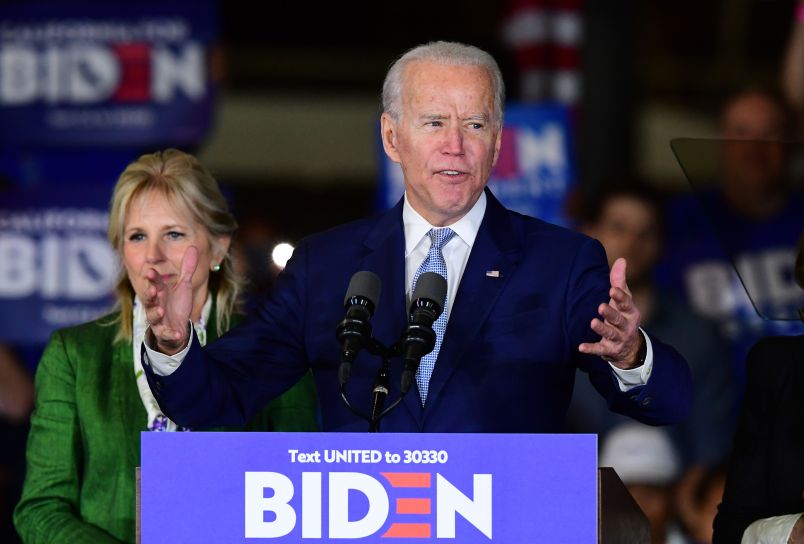To state the obvious: Joe Biden now has to be the favorite to win the Democratic nomination. Once he showed that he could win a primary, Democratic voters concerned above all about winning in the fall flocked to him; and Bernie Sanders is basically too radical for most of the Cold War-era voters over 40 or 45 years old. Of course, nothing is certain in politics these days, but if Biden’s lead holds up, what does that mean for the future of the Democratic Party?
On Monday, I wrote an email to Pat Buchanan, whose presidential campaigns I covered and whom I got to know during the 1996 campaign, and told him that what was happening with Sanders reminded me of what happened to him in 1996. After Buchanan won New Hampshire, the GOP establishment closed ranks around Bob Dole, and after Dole beat Buchanan in South Carolina, the battle for the nomination was over. (There was even a self-funded rich guy in the race, Steve Forbes, who dropped out.)
Why that analogy is possibly interesting is that in 1996, Buchanan was appealing to GOP voters on much the same issues that Trump did 20 years later. Trade, footloose multinational corporations, illegal immigration (squared), abortion (about which Buchanan was genuinely more passionate), guns, political correctness, and some version of affirmative action. (Unlike traditional Republicans, he didn’t threaten to cut social security or Medicare in order to balance the budget.) But at the time, there weren’t enough working class and small business Republican voters who responded to this complex of issues. By 2016 there were, and Donald Trump was very much Buchanan’s successor.
Sanders has attracted young voters who were born after the Cold War, who don’t have the same compunctions about socialism, who understand democratic socialism could actually be something good, who in the absence of union protection on their jobs, and union-negotiated insurance and pensions, look to the federal government to do something about these things — and also want the government to do something about access to higher education, student debt and climate change, which to them is what nuclear war was to my generation. Biden can mouth the words, but he doesn’t get it. Bernie does.
Moreover, Bernie appeals to the young across income group, race, sex and nationality. I’ve looked at the polls, and I have gone to quite a few rallies. The fabled white working class? He gets the younger voters many of whose parents have become Republicans. Warren the Harvard professor didn’t reach them. Pete Buttigieg, to paraphrase what my former colleague said of Al Gore, is an old person’s idea of a young person. The electorate that Bernie appealed to could be the future of the Democratic party the same way — and I am not making invidious political comparisons here — I am a Bernie Democrat — that Buchanan’s electorate became the future of the Republican party.
So what I would say to my fellow Democrats about Super Tuesday is this: be optimistic that you may have a candidate who can beat Donald Trump in November, and that is super-important. But be worried that if the Democrats can’t hold onto the Bernie generation of voters, Biden, if elected, will become the placeholder for a Republican majority led by the likes of Josh Hawley or Marco Rubio — younger politicians who are trying to take what is positive in Trump’s economics — in particular, the economic nationalism that Sanders also promoted — while ditching his bigoted social policies and adolescent behavior. I am hopeful that the young Democratic activists who have come to life over the last five years won’t let that happen, but I fear the dead hand of the K Street and Wall Street Democrats who have had much too much influence on the party over the last forty years.






